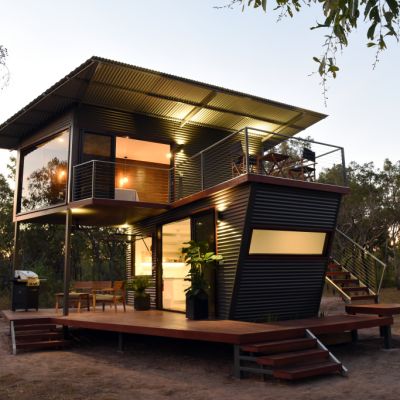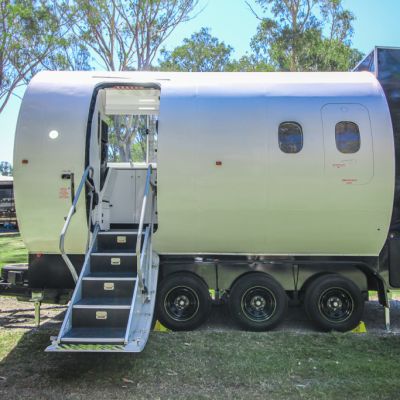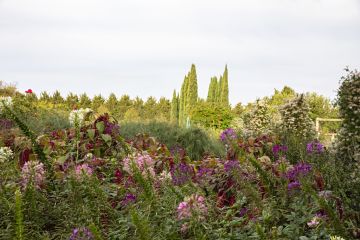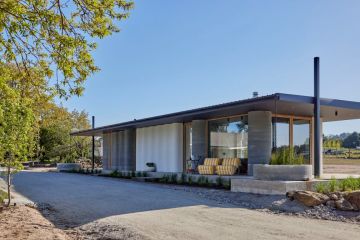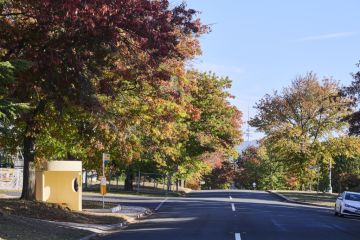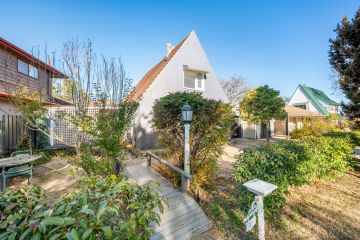How Bronte and Shaun went off-grid in the city
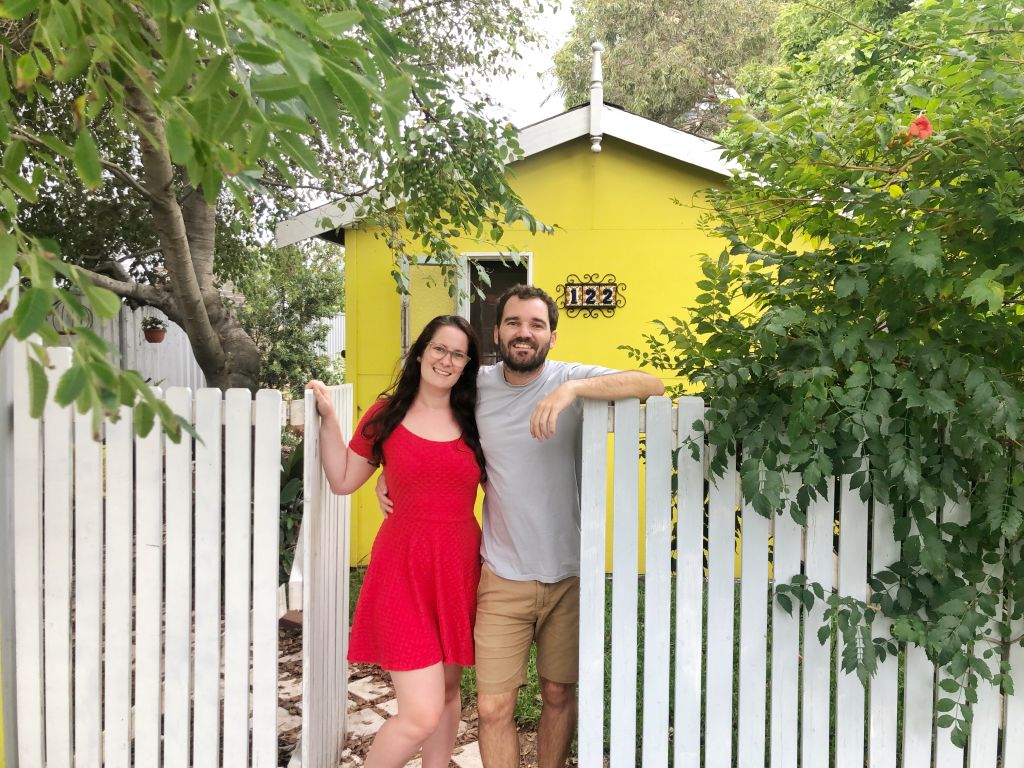
The thought of living off-grid brings to mind rugged bush blocks and the sounds of silence, but when Bronte Franklin and Shaun Carter made the switch, that’s not how it went down.
Disconnecting from standard utilities didn’t mean leaving family, friends and city conveniences for this couple, who bought their “little yellow shack” in Newcastle, the city they love, complete with solar panels, small battery, rainwater tanks and composting toilet.
Before finding this place, they’d assumed going off-grid meant going bush.
Have you ever thought about tiny living? Hear more on Somewhere Else:
“I haven’t met people who’ve done this in the city,” Franklin says. “I feel like people don’t know that it’s possible. We didn’t know.”
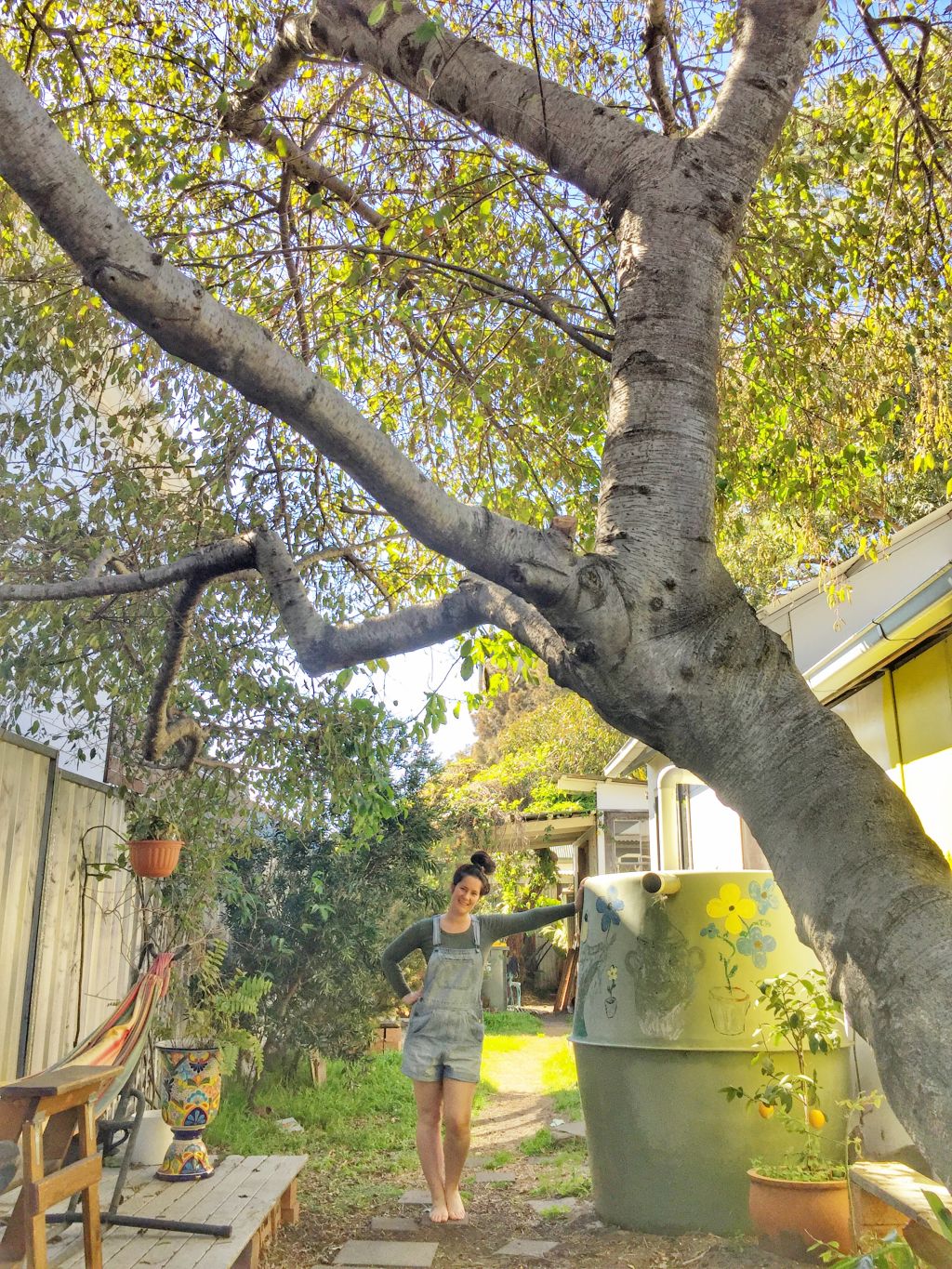
They were fortunate to buy the shack for a song. As it’s situated in a light industrial zone, it was priced at land value only – the assumption being the house would be demolished.
“And I was like, ‘I’m not letting anybody knock this place down, I have to have it’,” Franklin says.
Just three metres wide, it started life as the neighbour’s single-car garage (which is now the couple’s bedroom). The previous owner added a second room (the kitchen-lounge-dining room) plus a tin-roofed bathroom, accessed from outside. Rather than hooking up to utilities, he added alternatives to remain off-grid.
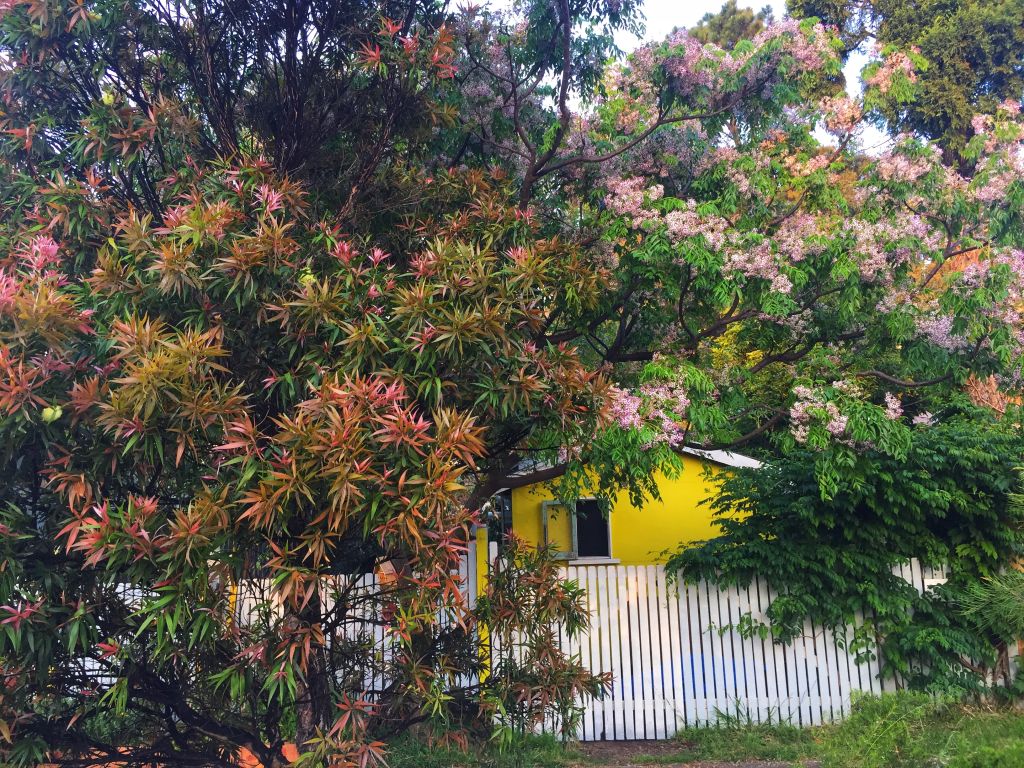
Franklin and Carter have embraced the changes an off-grid move brings such as no longer having electricity or water bills, but there were also some surprises.
Arriving in mid-winter meant a swift lesson in how weather would affect their home-life. “It just rained the entire time,” Franklin recalls. “We were trying to get used to things and the battery was alarming all the time from not getting enough sun. We were running [outside] to the bathroom in the rain.”
They weren’t warming themselves up with hot showers, either. A gas bottle from the servo heats their hot water and “doesn’t heat up that well. Even on maximum it’s still a pretty chilly shower in the morning in winter.”
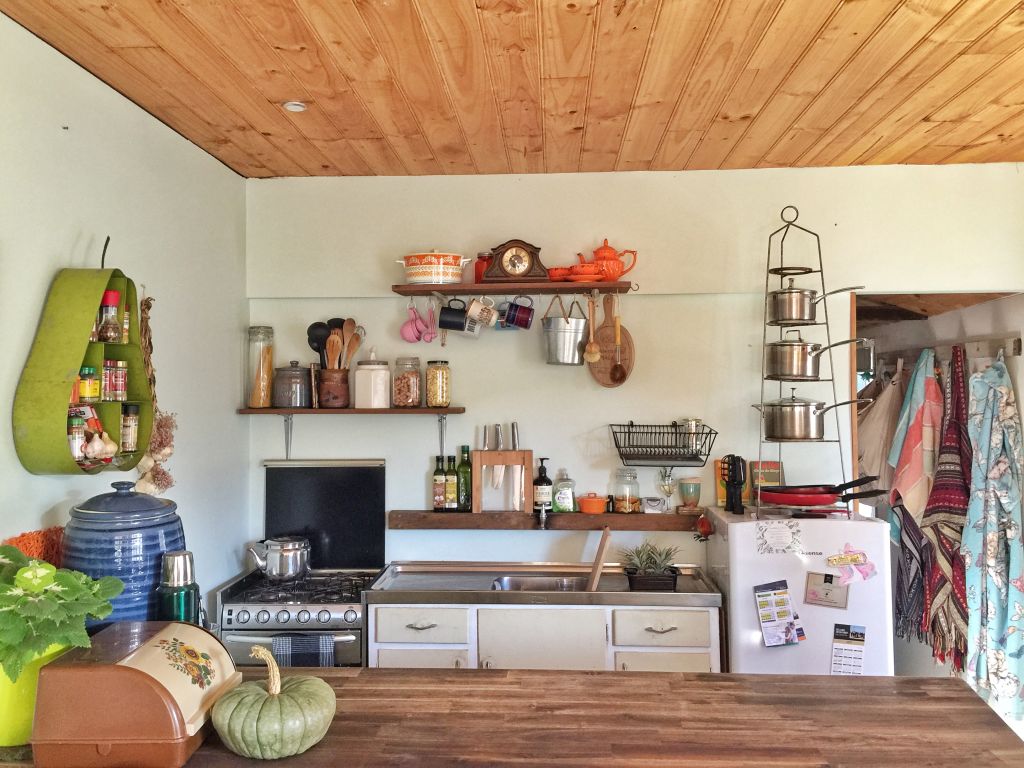
Then there was the time in summer when the water ran out completely. The day the tanks dried up, the couple was fortunate a family member had 1000 litres of water delivered to their home.
Socialising off-grid-style presents new challenges. Their first meal with guests required the use of a back-up petrol generator, used to finish off their slow-cooker dinner.
“As soon as the sun started going down, [the slow cooker] was drawing all of the power. So we turned the generator on and we power-generated that slow-cooker meal until it finished. It did end up causing a short in the light circuit so when our family came over for our first dinner … none of the lights turned on.”
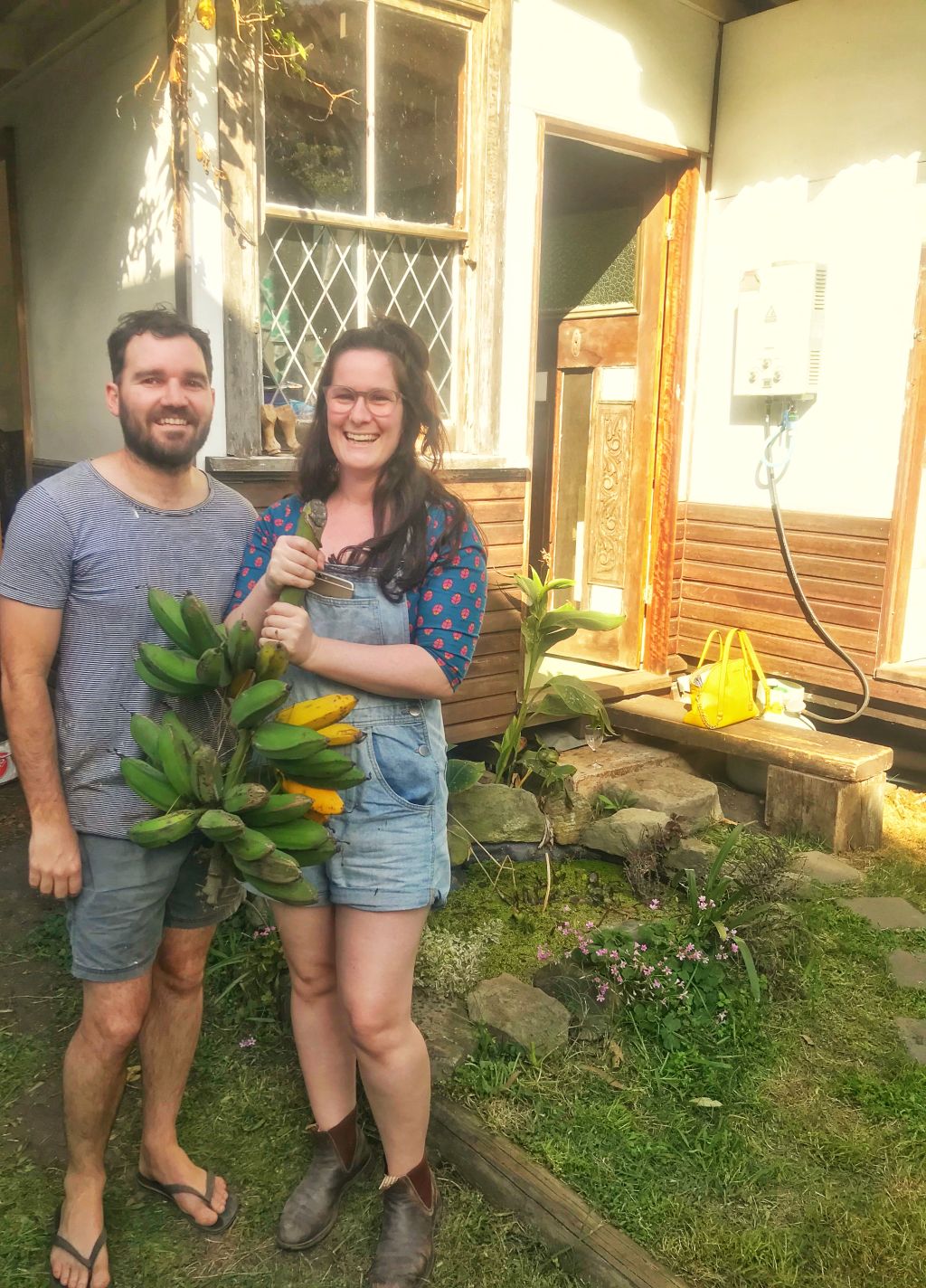
Franklin says adjusting to off-grid life is helped by an open mind and a trial-and-error approach.
“We really had no idea – just no idea what we were doing. It was just moving in, and then testing things out,” she says. “We thought maybe we could power an iron, but no – we can’t power an iron.”
While others might have been tempted to throw it in and go mainstream, the pair revelled in the chaos.
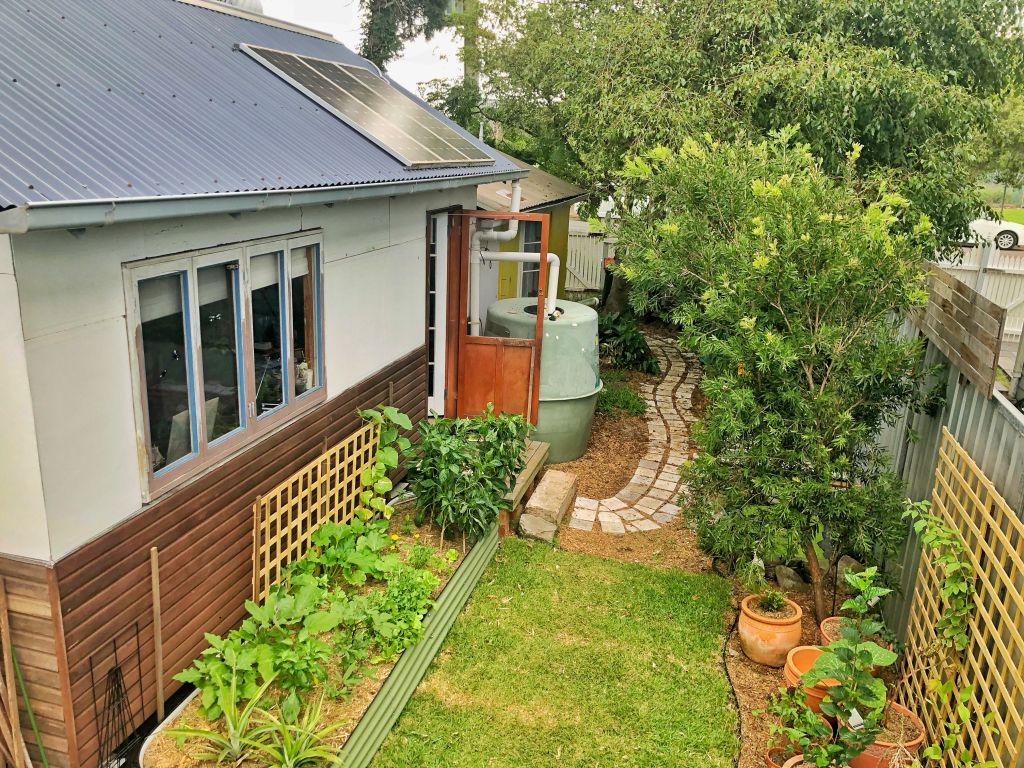
“Because we were so excited about it, it was like a honeymoon phase. Even the [battery] alarm going off 10 times a night … We laughed about it because of what a journey we’re on.”
The next phase will see some kid-friendly improvements to the shack, preparing for the family they’d like to have. They’re also working hard in the garden to reduce reliance on grocery stores, and the trial-and-error approach is in full force.
“We’ve had a lot of fails so far. The first four seasons are a test of what we can grow and how to grow things. Hopefully after the first year we can loop back around and have more of an idea of what we’re doing.”
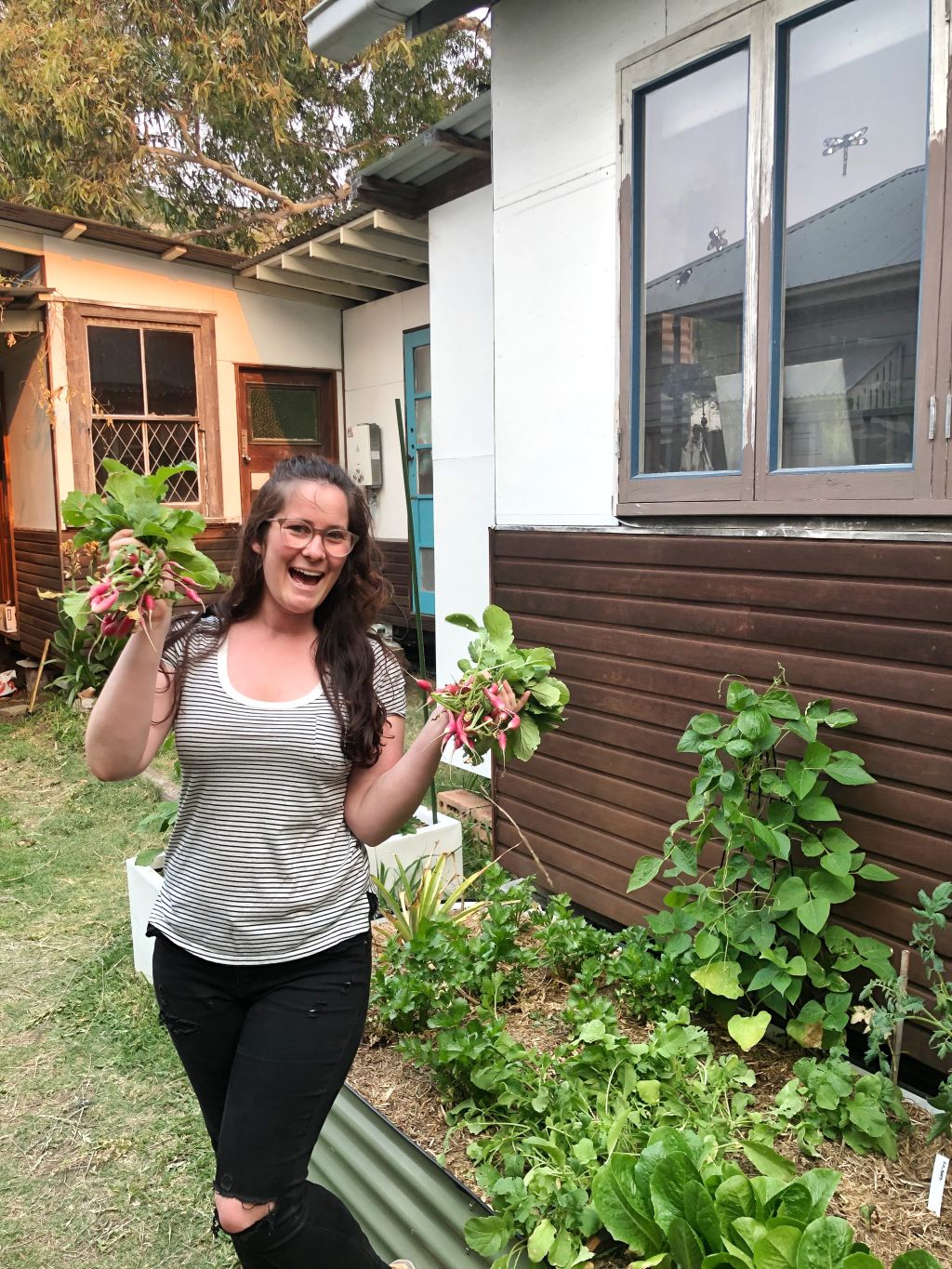
They’re relishing having what might be the best of both worlds – a city life closely linked to the elements.
“I feel so much more in touch with nature,” Franklin says. “Knowing as best I can when it’s going to be sunny, when we can do things like vacuum, or power the whipper-snipper. We’re always tracking when it’s going to rain and being thankful when it’s watered the garden, that it’s filling the tanks.”
We recommend
States
Capital Cities
Capital Cities - Rentals
Popular Areas
Allhomes
More
